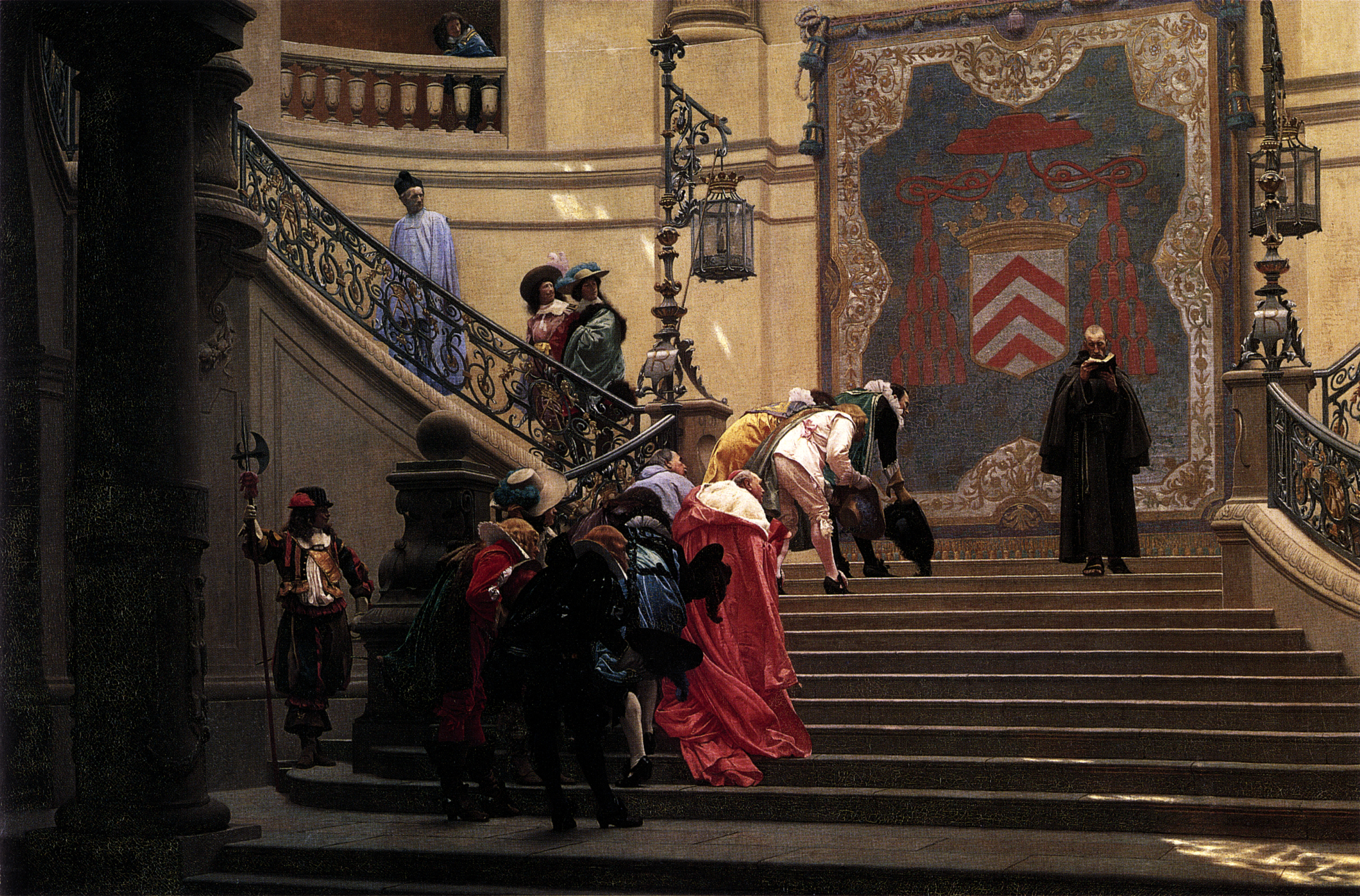
Éminence grise
An éminence grise (French pronunciation: [eminɑ̃s ɡʁiz]) or grey eminence is a powerful decision-maker or adviser who operates "behind the scenes", or in a non-public or unofficial capacity.
This phrase originally referred to François Leclerc du Tremblay, the right-hand man of Cardinal Richelieu, the de facto ruler of France.[1] Leclerc was a Capuchin friar who was renowned for his beige robe attire, as beige was termed "grey" in that era. The style His Eminence is used to address or refer to a cardinal in the Catholic Church.[2] Although Leclerc never achieved the rank of cardinal, those around him addressed him as such in deference to the great influence this "grey" friar held over "His Eminence the Cardinal".[3] As a result, the term grey cardinal has occasionally been used to express the same concept.
Leclerc is referred to in several popular works. Aldous Huxley wrote an English biography of Leclerc entitled Grey Eminence. There is also an 1873 painting by Jean-Léon Gérôme, L'Éminence Grise, which depicts him descending the grand staircase of the Palais Cardinal and the deference shown to him by others present. Leclerc is referred to in Alexandre Dumas' The Three Musketeers as the character Father Joseph, a powerful associate of Richelieu and one to be feared.